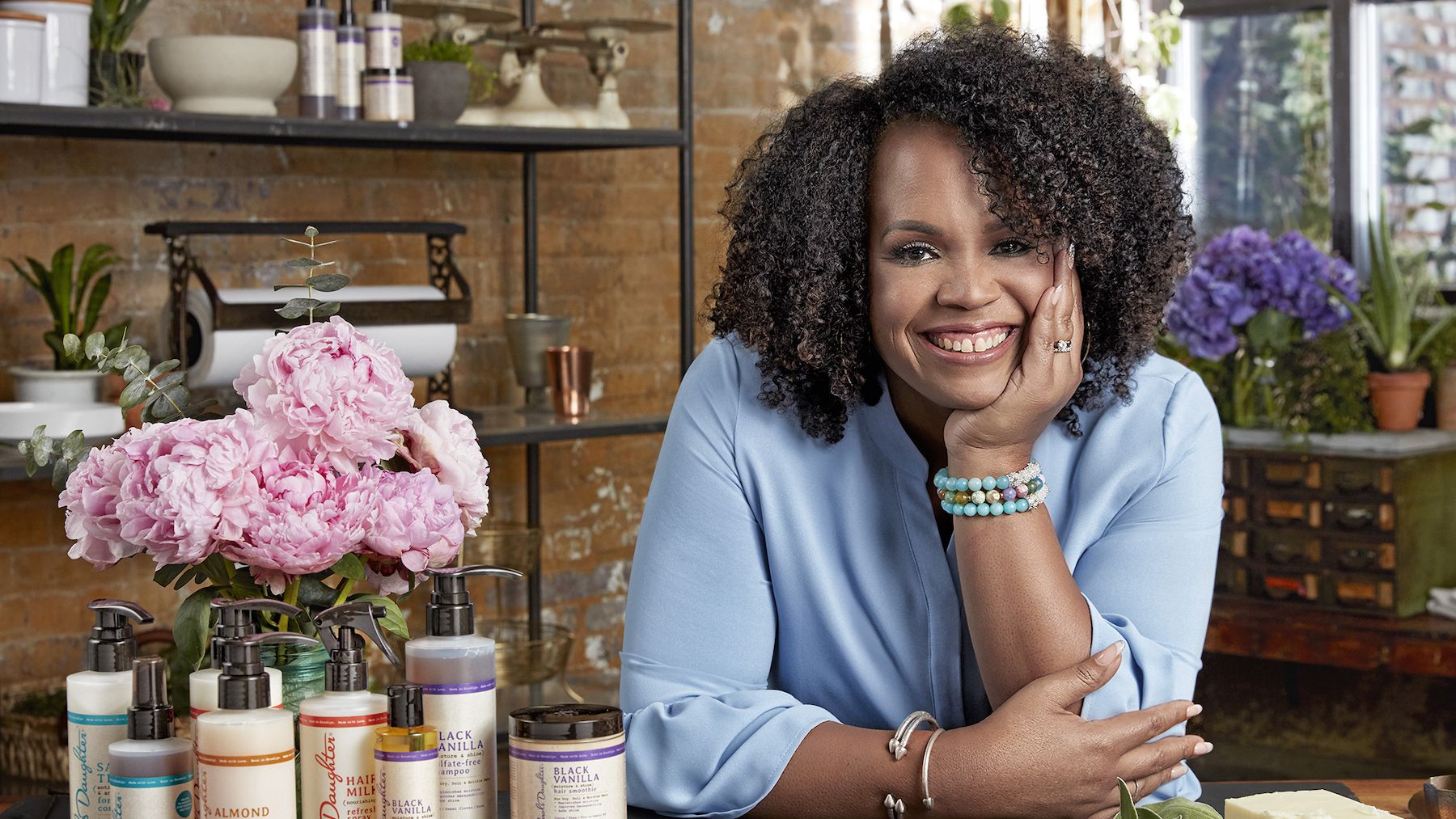
Before there was Melanin, Pattern or Mielle, there was Carol’s Daughter.
In 1993 when Lisa Price founded Carol’s Daughter, a line that sells body products and haircare for textured hair types, the Black consumer was often an afterthought in the wider beauty market. Today, discussion around natural curls, coils and kinks are a much larger part of the conversation. Brands like Bread Beauty Supply and Pattern are grabbing a greater share of the haircare market, and general market brands from Pantene to Living Proof have expanded their offerings for textured hair types.
“There’s so much more choice,” said Jessica Philips, vice president of merchandising at Ulta Beauty. “You have a lot more innovation and inclusivity in haircare, which is amazing … we’ve had a lot more Black founders enter the market.”
Carol’s Daughter hasn’t always benefitted from the changes it helped put in motion. It’s now an incumbent rather than an upstart — it celebrates 30 years in business next year, and has been owned by L’Oréal since 2014. The brand has at times found itself playing catchup to new rivals that connect with their customers through social media and cool, Gen-Z branding.
An updated marketing strategy and products meant to appeal to a new generation of consumers has helped (net sales have doubled in the last three years, with the Goddess Strength line, launched in 2020, the top seller, according to Anne Garrison, global marketing vice president at the brand). Now, after launching in the UK this month, it has plans to enter the rest of Europe next year. A second, Gen-Z focused line will soon launch in the US.
Keeping founder Price front and centre is integral to the strategy.
“I’ve always sold and made and promoted what I believed in, what I used in my own home,” Price said. “I think people see that. They see that you love what you do.”
Price, who was working in TV production, began making products from natural ingredients out of her Brooklyn kitchen in 1993. After selling her creations at local flea markets, the business took off, landing in major retailers like Ulta Beauty and Target and attracting investment from celebrities like Jay-Z, Will Smith and Jada Pinkett Smith.
The brand’s momentum mirrored a broader shift among Black Americans in the 2000s, who, propelled by safety concerns around chemical products and visibility of textured hair in the media, were swapping chemical relaxers for products that let them wear their hair naturally. Between 2008 and 2018 sales, sales of chemical relaxers fell by 40 percent, according to market research firm Mintel. By 2014, Carol’s Daughter had hit $27 million in net sales, distributing its products through hundreds of retail doors across the US.
Then L’Oréal came calling.
In 2014, Price sold her company to the beauty giant for an undisclosed sum, continuing to be involved in the brand’s day-to-day operations. The exit was intended to provide the company with the infrastructure it needed to reach the next level of growth. But scaling the brand would prove harder than anticipated.
The acquisition came just as a flurry of new brands targeting the same customers hit the market. In the 2010s, upstarts like Camille Rose, Mielle Organics and Bouclème launched into the textured haircare space, later joined by names like Bread Beauty Supply, Pattern and Melanin.
Many of these brands proved popular with younger consumers: Mielle and Melanin were founded by natural hair influencers who already had significant followings on social media, while others like Bread and Bouclème came to market with modern branding and Instagrammable packaging.
“All those brands were launching, and really targeting the Black consumer, but also communicating the same story that Lisa had — so then we had to work harder to break through,” said Garrison.
The rise of social media gave consumers a direct line to brands. As a result, community engagement quickly became an integral part in a crowded and fast-moving beauty market, said Nicole Crentsil, a Ghanaian-British entrepreneur and angel investor in textured hair care brand Afrocenchix.
“A lot of founders don’t necessarily always take into account consumer shifts, and how branding and community is so integral when it comes to building your business: not just how you speak to your community, but how your community speaks back to you,” she told BoF in a previous interview. “What are the interesting conversations that, when it comes to beauty and hair, your community is plugged into? You [as a brand] need to be plugged into them as well.”
Amid new competition and a fast-shifting beauty landscape, sales at Carol’s Daughter declined.
Carol’s Daughter was also grappling with another challenge: retaining the authenticity and DNA of a Black-founded brand for the Black community while under the large, corporate — and white-owned — L’Oréal umbrella.
Following the acquisition, Price received criticism from some social media users claiming that Carol’s Daughter was now operating as part of the corporate beauty structure that had historically ignored Black Americans. The backlash was particularly challenging for Price.
“Eventually we will get to a place where there is a Black-owned L’Oréal, or there is a Black-owned Unilever, so that when other businesses look for strategic partners to help them grow their business, they can go to businesses that look like them,” Price said. “But we’re not there yet.”
In 2018, Carol’s Daughter began some “very intense strategic work” to optimise the business model and kickstart growth, Garrison said. This meant doubling down on product innovation, introducing new products like its water-to-foam Wash Day Delight shampoo, and its Goddess Strength line, which both hit the market in early 2020. (The Goddess Strength franchise is now the brand’s best seller and is growing double digits year-on-year, Garrison said.)
In addition, the brand rethought its marketing, honing in on Price as a founder and her continued stewardship of the brand. Operationally, it the company worked to be more agile, and maintained its digital direct-to-consumer business (a contrast to some other flagship L’Oréal brands like Maybelline, which typically sell online via third-party retailers).
“The ‘Big L’Oréal model is really a model that doesn’t work for Carol’s Daughter,” Garrison said. “We couldn’t really operate like other L’Oréal brands, we had to maintain our indie and entrepreneurial spirit, so we had to do things differently.”
That strategy shift resonated during the pandemic, as consumers had more time to experiment and were pushed to embrace their natural textures due to salon closures. For the past three years, Carol’s Daughter has been steadily growing, doubling net sales, said Garrison. (The company declined to share current revenue figures; L’Oréal does not break out sales for individual brands.)
Now, the brand hopes to double sales again over the next three years, said Garrison and Izar Hyacinthe, L’Oréal’s European business development director. But success will hinge on the ability to stay relevant, especially among the next generation of beauty consumers.
Investing more in creating content for Tiktok and Snapchat is part of the strategy. In a few weeks, the company will launch a new range targeting a younger audience, differentiating it from the main line by emphasising gender fluidity and hair experimentation, Garrison said.
The brand plans to replicate its recent US success in new markets. It landed in the UK this month via drugstore chain Superdrug, partnering with Black-owned, Paris and London-based creative agency Haiti 73 on the market launch. The brand is also in talks with Black beauty supply shops, said Hyacinthe.
Expansion across Europe is on the cards next year, starting with France, which has the largest Black population in the region. It won’t be an easy market to crack: the natural hair movement has spawned a proliferation of local brands, including Beauté Insolente, Mango Butterfull, and Secrets de Loly, which received investment from PE firm Quilvest Capital Partners earlier this year.
“We definitely know that the competition is hard, so we have to be unique,” Hyacinthe said. Critical to success will also be emphasising the brand’s “30 years of expertise,” Hyacinthe said.



